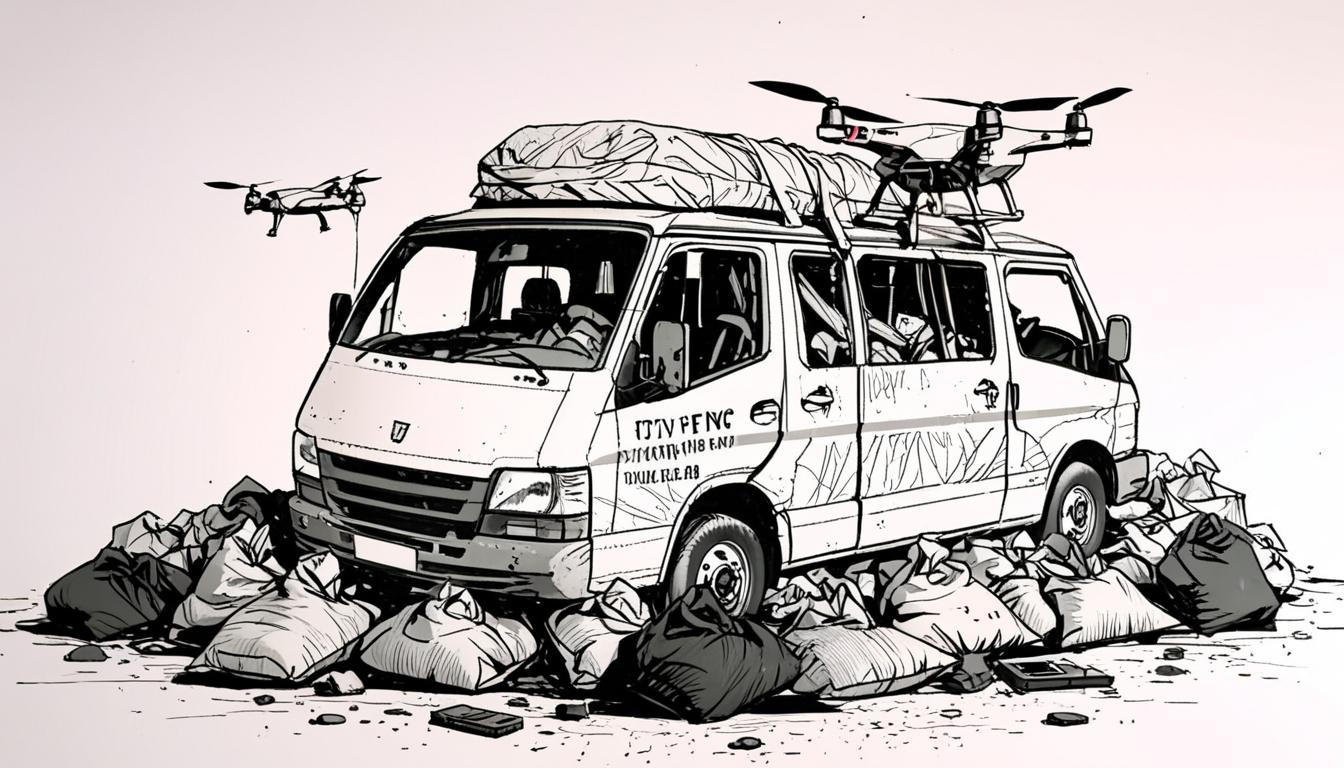The UK government is intensifying its efforts to combat the escalating problem of fly-tipping with a new suite of measures aimed at those who illegally dump waste. This crackdown targets so-called “waste cowboys” by introducing stronger penalties and enhanced enforcement tactics to address the issue, which has seen a significant rise in recent years.
Fly-tipping incidents in England have surged to over 1.1 million annually, with a 20 percent increase reported since 2018. Despite this rise, prosecutions have decreased by the same margin during the same period. The problem is not confined to public spaces alone; agricultural and rural communities report significant disruption, as illegal waste deposits on private land impose heavy financial and operational burdens.
As part of the new measures, local authorities will have the power to seize and crush vehicles and vans used by fly-tippers. This move will include reducing bureaucratic impediments that currently hinder councils from destroying seized vehicles. The cost of vehicle crushing will now be passed onto the offenders rather than taxpayers, ensuring that communities do not bear the financial consequences of illegal waste disposal.
Environment Secretary Steve Reed expressed his determination to tackle the issue, stating that those responsible “who blight our towns and villages have gone unpunished for too long.” He emphasised that he would not allow an “avalanche of rubbish [to] bury our communities,” signalling a tougher stance against fly-tipping.
Under new legislation, individuals caught transporting or dealing with waste illegally could face up to five years in prison, a significant increase in potential penalties. To improve detection and enforcement, drones and mobile CCTV vans will be deployed to identify and capture evidence against offending vehicles.
Data reveals that household waste accounts for around 60 percent of fly-tipped material, with 688,000 incidents involving items ranging from black bin bags to bulkier waste such as furniture, carpets, and DIY debris. The Liverpool, Manchester, and Bristol areas show high rates of fly-tipping, but the majority of occurrences (37 percent) take place on pavements and roads throughout the country.
The Environment Agency will be empowered further, with greater authority to issue enforcement notices and impose substantial fines. Agency Chief Executive Philip Duffy described waste crime as “toxic,” highlighting the harm caused to people, local environments, and legitimate businesses. He asserted: “At the Environment Agency, we’re determined to bring these criminals to justice through tough enforcement action and prosecutions.”
Current enforcement powers allow councils to seize vehicles linked to fly-tipping, but the practice remains rare. In 2022, only two councils—West Northamptonshire and Kingston-upon-Thames—were responsible for most vehicle seizures. The government’s new measures aim to broaden and intensify these efforts.
A Home Office study from 2018 underscored grave concerns about waste crimes, indicating that illegal waste management activities might serve as fronts for more serious offences, including human trafficking, drug and firearms supply, fraud, theft, and money laundering.
This comprehensive crackdown indicates a shift in governmental approach, combining harsher penalties, improved technology, and streamlined enforcement powers to address the growing challenge of fly-tipping in England. The Independent is reporting these developments as part of the ongoing government initiatives to protect communities from the impacts of waste crime.
Source: Noah Wire Services
